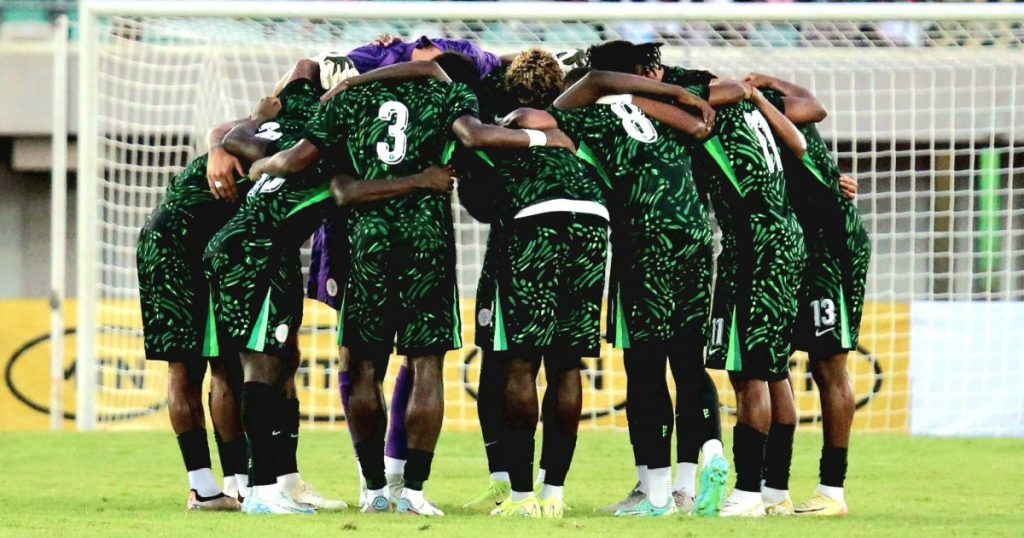Nigeria’s FIFA Ranking Slip and the Shifting Global Football Landscape
Nigeria’s recent performance in international football has resulted in a slight dip in their FIFA ranking, landing them in the 44th position globally as of the July 2025 update. This marks their lowest ranking since June 2019 when they occupied the 45th spot. Despite remaining unbeaten in their recent matches, which included a draw against Russia and a mixed performance in the Unity Cup where they defeated Ghana but drew with Jamaica, the Super Eagles were unable to accumulate sufficient points to maintain their previous ranking. This marginal increase in points from 1481.35 to 1484.26, a mere 2.91 point gain, highlights the fiercely competitive nature of international football and the fine margins that can influence a team’s standing on the global stage. The recent slip marks the third time in nine months that Nigeria has held the 44th position, having also occupied this spot in November and December 2024. While they briefly ascended to 43rd in April 2025, the July rankings saw them regress.
Within the African football landscape, Nigeria maintains its position as the fifth-highest-ranked team on the continent. Morocco continues its reign as the top-ranked African nation, holding the 12th position globally. Senegal follows closely, climbing one spot to 18th, the only country in Africa’s top 10 to improve its ranking. Egypt and Algeria experienced contrasting fortunes, with Egypt dropping to 34th while Algeria remained stable at 36th. Ivory Coast’s winless streak in four matches resulted in a fall to 45th, narrowly placing them behind Nigeria in the continental rankings. The dynamics of African football continue to shift, with Tunisia holding steady at 49th, Cameroon dropping to 51st, and Mali falling to 54th after a defeat. South Africa, despite a busy schedule of eight matches, remained at 56th after a series of disappointing results, managing only a single victory.
The global football hierarchy continues to be dominated by established powerhouses. Argentina maintains its grip on the top spot, followed by Spain, France, England, and Brazil. These teams represent consistent excellence and a history of strong performances on the international stage. Croatia’s return to the top 10 adds further intrigue to the global rankings, while Mexico’s impressive Gold Cup victory propelled them four places higher to 13th. Costa Rica emerged as the biggest climber in the July rankings, ascending 14 places after a strong showing in the Gold Cup, reaching the quarter-finals. These shifts reflect the dynamic nature of international football, where tournament successes can significantly impact a team’s global standing.
Nigeria’s fluctuating ranking underscores the challenges they face in maintaining a consistent presence among the world’s elite football nations. While their recent unbeaten run demonstrates a degree of resilience, the inability to translate this into significant ranking points highlights areas for improvement. The team’s performance in the Unity Cup, while yielding a victory against Ghana, also exposed vulnerabilities, as evidenced by the draw against Jamaica. Looking ahead, Nigeria must focus on converting draws into victories and achieving consistent results against high-quality opposition to climb the rankings and solidify their standing on both the continental and global stages.
The broader context of African football reveals a dynamic and competitive landscape. While Morocco’s continued dominance and Senegal’s upward trajectory are positive signs for the continent, the fluctuating fortunes of other African nations highlight the need for consistent performance and strategic development. The cases of Egypt, Algeria, Ivory Coast, Tunisia, Cameroon, Mali, and South Africa all demonstrate the challenges of navigating the complexities of international football and the importance of sustained investment in both player development and team infrastructure. As African football continues to evolve, the battle for continental supremacy and global recognition remains intense.
The July 2025 FIFA Men’s World Ranking provides a snapshot of the current state of international football, reflecting both the stability at the top and the dynamic shifts occurring within the lower ranks. The rankings serve as a barometer of national team performance, highlighting the importance of consistency, strategic planning, and effective player development. As the football world moves towards future international competitions, these rankings will undoubtedly continue to fluctuate, reflecting the evolving landscape of the beautiful game. With over 200 international fixtures taken into account for these rankings, the next update, scheduled for September 18, 2025, promises further insights into the global football hierarchy and the ongoing competition for supremacy.


